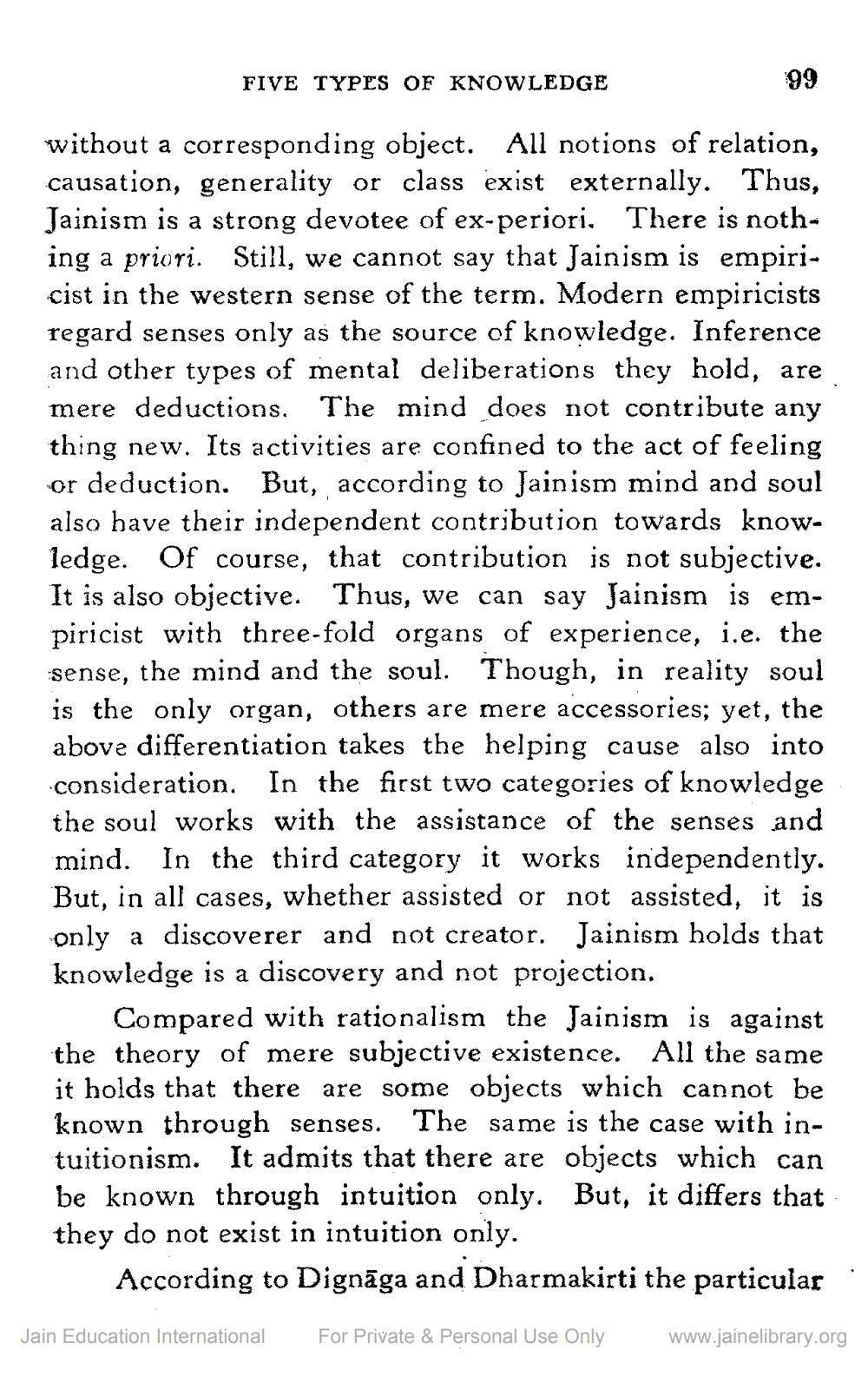________________
FIVE TYPES OF KNOWLEDGE
99
without a corresponding object. All notions of relation, causation, generality or class exist externally. Thus, Jainism is a strong devotee of ex-periori. There is nothing a priori. Still, we cannot say that Jainism is empiricist in the western sense of the term. Modern empiricists regard senses only as the source of knowledge. Inference and other types of mental deliberations they hold, are mere deductions. The mind does not contribute any thing new. Its activities are confined to the act of feeling or deduction. But, according to Jainism mind and soul also have their independent contribution towards knowledge. Of course, that contribution is not subjective. It is also objective. Thus, we can say Jainism is empiricist with three-fold organs of experience, i.e. the :sense, the mind and the soul. Though, in reality soul is the only organ, others are mere accessories; yet, the above differentiation takes the helping cause also into consideration. In the first two categories of knowledge the soul works with the assistance of the senses and mind. In the third category it works independently. But, in all cases, whether assisted or not assisted, it is only a discoverer and not creator. Jainism holds that knowledge is a discovery and not projection.
Compared with rationalism the Jainism is against the theory of mere subjective existence. All the same it holds that there are some objects which cannot be known through senses. The same is the case with intuitionism. It admits that there are objects which can be known through intuition only. But, it differs that they do not exist in intuition only.
According to Dignāga and Dharmakirti the particular
Jain Education International
For Private & Personal Use Only
www.jainelibrary.org




